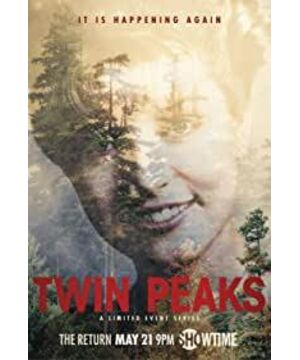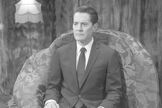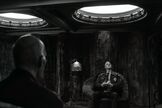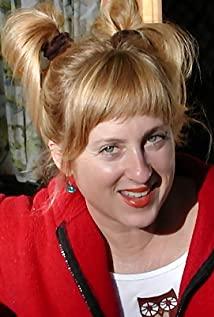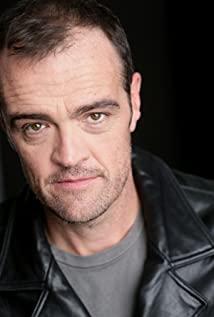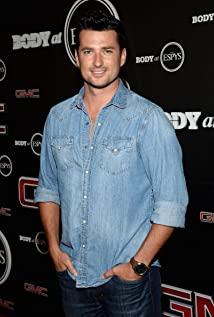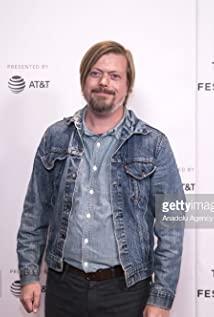This article is the frontispiece of the July-August and October 2017 issues of "Cinema Manual".
Author: Stéphane Delorme
Chinese part self-translation
There may be some errors in the machine translation, but it basically does not affect the reading.
October issue: Réel
The last episode of "Twin Peaks" plunges us into the abyss, and the discussion on it will never stop. "What happened?" The key to this question is not whether this is a tragic ending or not (we are looking forward to a happy ending almost desperately). This ending succeeded, in an incredible way: to sink us in a corner of the world. It pierced the appearance. It touches us, makes us feel it in the body, feels the kind of trauma, Lynch's purpose is to make us react in reality. Therefore, it is necessary for him to make the work "real". What did this great ending do? After a very, very long trip that could eliminate everything, we entered the seemingly real Shuangfeng Town (Double R restaurant appeared from a special angle). After a long time, the two actors returned from a deserted world and found themselves standing face to face in front of the real master of Sarah Palmer's house (but there is a familiar name in the play, Tremond). Lynch threw us at this moment, in the middle of a road, like Cooper and Laura were unaware, so a rare effect occurred, our senses were sharper, listening to the silent night. In this way, we stay on this street, no matter what the meaning is, and no matter whether we can understand what happened. These characters are projected into our reality, and our audience is projected into the episode, opening up another world. Lynch didn't want to abandon us. On the contrary, he let the audience face himself, "What year is this eve?" It is our turn to answer: 2017, and everything can start from a new beginning.
It is no exaggeration to say that this "Twin Peaks" is the greatest political work of our time. Lynch made this invincible tower, a tower he couldn't build in reality: he built it in fiction to form an 18-episode "Tower of Babel" to change our lives. This is not a hut in a flood, nor is it a paradise where everything is perfect, and it is not just guarded by superheroes wearing green gloves. This tower rises in a dark age, and its warriors support every victory and defeat. Although the ending of the series makes us desperate, according to Eisenstein's still-used concept, only a film with a tragic ending can trigger a rebellion. This open ending, like all great modern works, gives us space, and it welcomes us: not to interpret it with splicing fragments (this is exciting and happy enough), but to let us continue. Lynch handed over the baton, and the green glove was passed to us: "Why me?" "Why not you?"
One can say that Lynch’s goal is moral (the battle between good and evil in the heart) or abstract (discussing the existence of evil), but the challenge of this "Twin Peaks" is to shift to politics. This is what Lynch had never done before. Things done. We have never seen him show his worries about this era and this America in his works, using a series of "red-necked" white garbage that disgusts him, the irony of stupid gun violence; , The concern of the poor who are forced to sell their blood to survive ("fucking government"). The world is living under the threat of violence, just like a certain Mitchum brother, after witnessing the violence of an accountant driving a van, said: "Everyone is under pressure now." But this is not a simple condemnation, this The "Double Peaks" is the "Apocalypse" flyer of a social activist, hoping that everything can be changed before it perishes. Lynch believes that we can change the world, and he uses all his power to touch and guide us.
The magnificent beauty of this "Double Peaks" is because of Lynch's lead, this is a performance that must be watched. He tried his best, he dared to use his time to create a bridge that has never been seen in film history. He spent many years building this 18-hour Odyssey, bringing the unbelievable close at hand; he recalled old friends, invited new ones, and took good care of them. This director who has been with us for more than 25 years (and also a filmmaker of this era) has conveyed the secret to our ears: an oasis named "Two Peaks" / Utopia / Datong society was born, and words cannot try to convey this The power of artificial reality. Is all this just a dream? It's up to us to decide.
English machine translation:
The last episode of Twin Peaks has plunged us into abysses and since the discussions never end. What happened? The question is not whether it ends badly or not (that desperate attempts to believe in the happy ending!). The end succeeds. succeed Shes in something incredible: to sink a corner in our world. She pierces appearances. It touches us deeply in our life. We feel it in our body, we feel this wound on our side. Lynch's goal is to make us act in the real world . It was therefore necessary to make the film "real". What does this extraordinary end do? After a long long night crossing, which gets rid of everything, we enter the Twin Peaks city, as if it were the real one (the Double R seen from a new angle), the two actors coming back so far that the world seems deserted, and they find themselves face to face with the owner,in the life, of the house of Sarah Palmer, but decked out with a name of fiction that we know too well (Tremond), and Lynch leaves us there, in the middle of the street, as obsolete as Coop and Laura, with an effect of real rarity, the senses sharpened, listening to the silence of the night. There we are, in this street, and we stay there. Whatever the meaning, what matters is to stay there to understand what happened. The characters are projected in our world, we are projected into the show: this conflagration opens a door to a new world. Lynch does not want to lose us, on the contrary he puts us in front of ourselves. What year is it? It's up to us to answer : in 2017. And everything can start from there.in the middle of the street, as obsolete as Coop and Laura, with an effect of real rarity, the senses sharpened, listening to the silence of the night. There we are, in this street, and we stay there. Whatever the meaning, what matters is to stay there to understand what happened. The characters are projected in our world, we are projected into the show: this conflagration opens a door to a new world. Lynch does not want to lose us, on the contrary he puts us in front of ourselves. What year is it? It's up to us to answer: in 2017. And everything can start from there.in the middle of the street, as obsolete as Coop and Laura, with an effect of real rarity, the senses sharpened, listening to the silence of the night. There we are, in this street, and we stay there. Whatever the meaning, what matters is to stay there to understand what happened. The characters are projected in our world, we are projected into the show: this conflagration opens a door to a new world. Lynch does not want to lose us, on the contrary he puts us in front of ourselves. What year is it? It's up to us to answer: in 2017. And everything can start from there.The characters are projected in our world, we are projected into the show: this conflagration opens a door to a new world. Lynch does not want to lose us, on the contrary he puts us in front of ourselves. What year is it? It's up to us to answer: in 2017. And everything can start from there.The characters are projected in our world, we are projected into the show: this conflagration opens a door to a new world. Lynch does not want to lose us, on the contrary he puts us in front of ourselves. What year is it? It's up to us to answer: in 2017. And everything can start from there.
It is no exaggeration to say that Twin Peaks is the great political work of our time. Lynch built his Tower of Invincibility, the one he tried to build in vain in real life: he did it in fiction, an 18-episode Babel Tower, to change our lives. This tower is not a flooded lodge nor a paradise where everything is fine, and it is not populated only by guards armed with a green glove of superheroes. This tower rises in the dark of the Dark Age and its fighters support as many victories as defeats. We are devastated by the end of Twin Peaks. But, according to the good old precept of Eisenstein, a film that ends badly is more likely to provoke revolt. This open end, as in all the great modern works , gives us room, welcomes us: not only to pick up the pieces from a hermeneutic point of view, which is already exciting and funny, but because it it's up to us to do it. Lynch passes the baton. The green glove is given to us. "Why me? Why not you ?"
One could say that Lynch's aim is ethical (the eternal fight of good against evil) or metaphysical (the question of the existence of evil), but the challenge of this Twin Peaks is to switch to politics, what he had never done. Never had we seen this concern to speak of his time, of America, with this litany of beaufs white trash that he vomits, and that he can not help each episode to show in their armed violence and their stupidity, and conversely these poor people, in caravans , forced to sell their blood to survive ("fucking government"). It is the world as it is that engenders violence: "Everyone is under a lot of stress now," said one of the Mitchum brothers, scared by the violence of a chartered accountant. But the series far exceeds the simple denunciation. Twin Peaks is an activist leaflet for everything to change,an apocalyptic work. Lynch believes we can change this world. And he does everything possible to touch us and get there.
The immense beauty of Twin Peaks is that Lynch is leading the way. This is his gesture that must be watched. He who does everything possible, who braves the time, creates a bridge with the past as never in the history of cinema, invents in a handful of years an odyssey of 18 hours, which shows that the unimaginable is within reach of hand, he who gathers his friends, invites strangers, takes care of everyone, he who accompanies us for 25 years at least (it is definitely the filmmaker of a whole generation) and who comes to talk to us in the secret of the ear: it creates what some would call an oasis, a utopia or a community-but these words connoted, tired, folded, lack the power of manufacturing reality, global reality, that Twin Peaks. Is all this just a dream? To us to see.
July-August issue: Non-existent (1-8 episodes)
When Dale Cooper finally comes out of the Black Lodge and falls into infinity, the tree shouts: "Non existent!" Yes, what we see is non-existent. What an unexpected gift makes us David Lynch, 25 years later! Season 3 of Twin Peaks, entirely made by him, is a fireworks display. In one of his rare interviews, he says that he has designed a series less than an 18-hour film, to be discovered every week (18 parts, until September 3). A film that does not stop repeating and that multiplies the peaks. It's hard to be astonished at the New York episode that Part 3 comes with his head of Eraserhead, then Part 6's hyper-violent, then Part 8. Two pictures interviews in the office of Gordon Cole, Kafka and the atomic bomb, And BOUM, five episodes later, the bomb exploded in 1945 and created the metamorphosis of a mutant insect.Every time he takes a step towards the old world of Twin Peaks, a leap back always sends us back further. Lynch knows he has captured a "big fish," as he says in his poetic art Catching the Big Fish. Gordon Cole confirms it when he repeats (like Dougie) what Denise tells her: "You are on something Big-He agrees: Big".
Season 3 is an immense gesture as if Lynch wanted to communicate all his ideas. Create the great work, synthesis, while avoiding compilation. And at the same time that he ventures farther, he does not forget Twin Peaks. The season is done without some characters, it's not their story, and yet these reunions are expected, Lynch offers them: James, Bobby, a sequence is enough. It barely supports and is devastated. He knows he's driving a Rolls. But even a Rolls purrs. Then he jumps elsewhere, constantly changing ladder, but without spice. It is enough for a beast that slowly enters the mouth of a teenager so that all the cinema of horror starts again from scratch. The absence of immediate explanation drives our mind, we seek, we think , we imagine. He plays with the cat and the mouse, but we are in good hands, filled with signs and emotions.What the periodicity allows precious is to see a work of art create before our eyes.
An unprecedented emotion also arises from these reunions with the actors. The three roles given to Kyle MacLachlan (exceptional) recall Laura Dern's role in the Inland Empire. Both times it is the impulse of an actor, a friend, who gives the green light. These two actors he discovered when they were 20 years old, they loved each other in Blue Velvet and in life: she alone could inevitably play Diane. There is also the dedication to the missing actors, even though they appear in the series: Catherine Coulson (Woman with the Log), Miguel Ferrer (Albert), Warren Frost (Dr. Hayward) are filmed for the last time. The series takes the form of a farewell to friends. Nothing but the plan of Harry Dean Stanton on his bench! We find him where he'd been staring at the stars at the end of A True Story. All these ideas are overwhelming.Even on the screen, under the guise of Gordon Cole, Lynch always walks with Albert and new recruit Tammy, and he needs besides Diane. He wants to gather everyone in his Noah's Ark.
Talking about a current film is a perilous exercise, especially when it takes on such a fragmented form. Our equally fragmented ensemble replaces the work, multiplies entries and celebrates ideas (hence "The Alphabet" in homage to its short film of 1968). Our wish is to accompany the readers whom Lynch will certainly have in the meantime brought to other worlds. To give also want to review the first episodes of the season because each is so new that it tends to erase the previous one. Now it is indeed a whole that presents itself, piece by piece. Review episodes reserves a different experience. It is an icy world, and yet it is well, because intelligence, curiosity, beauty, love, if they threaten to disappear, are everywhere in Lynch's eyes. In the old Twin Peaks, Gordon Cole, the filmmaker's spokesperson (or rather loudspeaker),was shouting in the middle of the chaos: "Let your smile be your umbrella." Let your smile be your umbrella.
View more about Twin Peaks reviews


